Florida's 5th congressional district
| Florida's 5th congressional district | |||
|---|---|---|---|
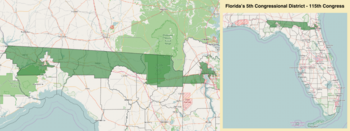 Florida's 5th congressional district - since January 3, 2017 | |||
| Representative |
| ||
| Area | 3,911[1] sq mi (10,130 km2) | ||
| Distribution |
| ||
| Population (2019) | 742,643[3] | ||
| Median household income | $43,667[4] | ||
| Ethnicity |
| ||
| Cook PVI | D+12[5] | ||
Florida's 5th congressional district is a congressional district in the U.S. state of Florida. It extends along Florida's northern boundary from Jacksonville to Tallahassee. The district includes all of Baker, Gadsden, Hamilton and Madison counties and portions of Columbia, Duval, Jefferson, and Leon counties. It is a minority-majority district.
As defined by the state legislature in 2013 (which lasted until 2017), the 5th district ran from Jacksonville to Orlando; it was considered one of the most-gerrymandered congressional districts in the country.[6] Before 2013, similar territory was included the 3rd district.
From 2002 to 2013 the district comprised all of Citrus, Hernando, and Sumter counties and most of Lake, Levy, and Pasco counties and portions of Marion and Polk counties. The district included northern exurbs of Tampa and western exurbs of Orlando within the high-growth Interstate 4 Corridor. This iteration of the 5th district is now largely contained in the 11th district.
The district is currently represented by Democrat Al Lawson.
Historical district boundaries[edit]
Florida's 3rd Congressional District was renumbered to 5th Congressional District but was little changed in the redistricting process in 2012, still winding from Orlando in the south to central Jacksonville in the north.[7]
From 1973 to 1993 the erstwhile 3rd district was based in Orange County, including Walt Disney World and most of Orlando. The peculiar shape of the 3rd (now 5th) Congressional District dates from reapportionment done by the Florida Legislature after the 1990 U.S. Census. The 1993–2012 3rd Congressional District was geographically distinctive. Starting from the southern part of the district, it included the Pine Hills area of the Orlando-Kissimmee Metropolitan Area with small pockets of African-American neighborhoods in the cities of Sanford, Gainesville, Palatka, and finally the larger African American communities of Jacksonville.[8] Connecting these areas were regions which are sparsely populated—either expansive rural areas or narrow strips which are only a few miles wide.[9][10] Barack Obama received 73% of the vote in this district in the 2008 Presidential election.
Court-ordered changes[edit]
On July 11, 2014, Florida Circuit Court Judge Terry Lewis ruled that this district, along with the neighboring District 10, had been drawn to favor the Republican party by packing black Democratic voters into District 5.[8][11] On August 1, Judge Lewis gave Florida's state legislature an Aug. 15 deadline to submit new congressional maps for those two districts.[12]
5th District Representative Corrine Brown issued a statement blasting Lewis's decision on the district map as "seriously flawed,"[10] and Congressional Black Caucus Chairwoman Marcia Fudge sent a sharply worded letter to Democratic Congressional Campaign Committee Chairman Steve Israel complaining about the party's support for the lawsuit challenging Florida's district maps.[13]
Brown said that "we will go all the way to the United States Supreme Court, dealing with making sure that African Americans are not disenfranchised."[14] Florida House Redistricting Chairman Richard Corcoran, a Republican, said that "consideration of political data is legally required" to ensure that district boundaries would not be so shifted as to not allow African-Americans a chance to elect representatives of their choice.[15]
On appeal, the Florida Supreme Court approved a redrawn version of District 5 on December 2, 2015. That plan went into effect for the 2016 elections.[16] The new district had a dramatically different shape than its predecessor. It now stretched in an east-west configuration along the Georgia border from downtown Jacksonville to Tallahassee. However, it was no less Democratic than its predecessor, as noted in the Florida Supreme Court's final opinion:
"With a black share of registered Democrats of 66.1%, the black candidate of choice is likely to win a contested Democratic primary, and with a Democratic registration advantage of 61.1% to 23.0% over Republicans, the Democratic candidate is likely to win the general election."
Voting[edit]
| Election results from presidential races | ||
|---|---|---|
| Year | Office | Results |
| 1992 | President | Clinton 42–34% |
| 1996 | President | Clinton 50–37% |
| 2000 | President | Gore 50–46% |
| 2004 | President | Bush 58–41% |
| 2008 | President | McCain 56–43% |
| 2012 | President | Obama 63-35% |
| 2016 | President | Clinton 61–35% |
List of members representing the district[edit]
The district was created January 3, 1937.
Election results[edit]
2002[edit]
| Party | Candidate | Votes | % | |||
|---|---|---|---|---|---|---|
| Republican | Ginny Brown-Waite | 121,998 | 47.90% | |||
| Democratic | Karen L. Thurman (Incumbent) | 117,758 | 46.24% | |||
| Independent | Jack Gargan | 8,639 | 3.39% | |||
| Independent | Brian P. Moore | 6,223 | 2.44% | |||
| No party | Others | 53 | 0.02% | |||
| Total votes | 254,671 | 100.00% | ||||
| Turnout | ||||||
| Republican gain from Democratic | ||||||
2004[edit]
| Party | Candidate | Votes | % | |
|---|---|---|---|---|
| Republican | Ginny Brown-Waite (Incumbent) | 240,315 | 65.93% | |
| Democratic | Robert G. Whittel | 124,140 | 34.06% | |
| No party | Others | 33 | 0.01% | |
| Total votes | 364,488 | 100.00% | ||
| Turnout | ||||
| Republican hold | ||||
2006[edit]
| Party | Candidate | Votes | % | |
|---|---|---|---|---|
| Republican | Ginny Brown-Waite (Incumbent) | 162,421 | 59.85% | |
| Democratic | John T. Russell | 108,959 | 40.15% | |
| Total votes | 271,380 | 100.00% | ||
| Turnout | ||||
| Republican hold | ||||
2008[edit]
| Party | Candidate | Votes | % | |
|---|---|---|---|---|
| Republican | Ginny Brown-Waite (Incumbent) | 265,186 | 61.15% | |
| Democratic | John T. Russell | 168,446 | 38.85% | |
| Total votes | 433,632 | 100.00% | ||
| Turnout | ||||
| Republican hold | ||||
2010[edit]
| Party | Candidate | Votes | % | |
|---|---|---|---|---|
| Republican | Rich Nugent | 208,815 | 67.43% | |
| Democratic | Jim Piccillo | 100,858 | 32.57% | |
| Total votes | 309,673 | |||
| Turnout | 100.0% | |||
| Republican hold | ||||
2012[edit]
| Party | Candidate | Votes | % | |||
|---|---|---|---|---|---|---|
| Democratic | Corrine Brown | 190,472 | 70.80% | |||
| Republican | LeAnne Kolb | 70,700 | 26.30% | |||
| No Party Affiliation | Eileen Fleming | 7,978 | 3.00% | |||
| Total votes | 269,153 | |||||
| Turnout | 100.0% | |||||
| Democratic gain from Republican | ||||||
2014[edit]
| Party | Candidate | Votes | % | |
|---|---|---|---|---|
| Democratic | Corrine Brown (Incumbent) | 112,340 | 65.47% | |
| Republican | Glo Smith | 59,237 | 34.53% | |
| Total votes | 171,577 | |||
| Turnout | 100.0% | |||
| Democratic hold | ||||
2016[edit]
| Party | Candidate | Votes | % | |
|---|---|---|---|---|
| Democratic | Al Lawson | 194,549 | 64.2% | |
| Republican | Glo Smith | 108,325 | 35.8% | |
| Total votes | 302,874 | |||
| Turnout | 100.0% | |||
| Democratic hold | ||||
2018[edit]
| Party | Candidate | Votes | % | |
|---|---|---|---|---|
| Democratic | Al Lawson (Incumbent) | 180,527 | 66.78% | |
| Republican | Virginia Fuller | 89,799 | 33.22% | |
| Total votes | 270,326 | 100.0% | ||
| Democratic hold | ||||
2020[edit]
| Party | Candidate | Votes | % | ||
|---|---|---|---|---|---|
| Democratic | Al Lawson (Incumbent) | 219,463 | 65.13% | ||
| Republican | Gary Adler | 117,510 | 34.87% | ||
| Total votes | 336,973 | 100.0% | |||
| Democratic hold | |||||
References[edit]
- ^ "Congressional Plan--SC14-1905 (Ordered by The Florida Supreme Court, 2-December-2015)" (PDF). Florida Senate Committee on Reapportionment. Retrieved 11 January 2017.
- ^ https://www.census.gov/geo/maps-data/data/cd_state.html
- ^ https://www.census.gov/mycd/?st=12&cd=05
- ^ https://www.census.gov/mycd/?st=12&cd=05
- ^ "Partisan Voting Index – Districts of the 115th Congress" (PDF). The Cook Political Report. April 7, 2017. Retrieved April 7, 2017.
- ^ Ingraham, Christopher (May 15, 2014). "America's most gerrymandered congressional districts". washingtonpost.com. Retrieved May 21, 2014.
- ^ "Florida's 5th Congressional District". WJXT - Jacksonville. 24 July 2012. Retrieved 5 August 2014.
- ^ a b James, Frank (11 July 2014). "Florida Ruling Is A Primer On Redistricting Chicanery". NPR.org. National Public Radio. Retrieved 5 August 2014.
- ^ Leary, Alex (14 May 2011). "Democrat U.S. Rep. Corrine Brown again aligns with GOP in Florida redistricting battle". Tampa Bay Times. Retrieved 5 August 2014.
- ^ a b Leary, Alex (10 July 2012). "Corrine Brown calls redistricting decision 'seriously flawed'". Tampa Bay Times. Retrieved 5 August 2014.
- ^ http://thehill.com/blogs/ballot-box/house-races/211930-judge-strikes-down-florida-congressional-lines
- ^ Cotterell, Bill (5 August 2014). "Florida elections face uncertainty as congressional maps redrawn". Thomson Reuters. Reuters. Retrieved 5 August 2014.
- ^ Isenstadt, Alex (4 August 2014). "CBC, DCCC clash over Fla. redistricting suit". POLITICO.com. POLITICO LLC. Retrieved 5 August 2014.
- ^ Livingston, Abby (11 July 2012). "Florida Redistricting Ruling Gets Mixed Reactions From Democrats". Rollcall.com. CQ-Roll Call. Retrieved 5 August 2014.
- ^ Deslatte, Aaron (5 August 2014). "Florida Legislature: Don't talk to congressional members, political consultants". Orlando Sentinel. Retrieved 5 August 2014.
- ^ Dixon, Matt (December 2, 2015). "Siding with redistricting plaintiffs, top court upends political landscape". Politico Florida. Retrieved May 18, 2016.
- Martis, Kenneth C. (1989). The Historical Atlas of Political Parties in the United States Congress. New York: Macmillan Publishing Company.
- Martis, Kenneth C. (1982). The Historical Atlas of United States Congressional Districts. New York: Macmillan Publishing Company.
- Congressional Biographical Directory of the United States 1774–present
Coordinates: 29°23′07″N 81°45′04″W / 29.38528°N 81.75111°W




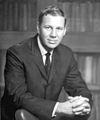

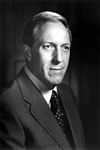
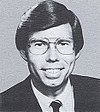

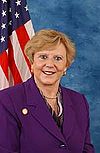

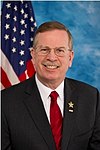
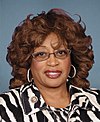
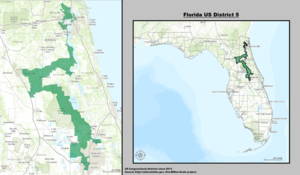
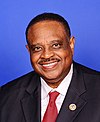

No comments:
Post a Comment